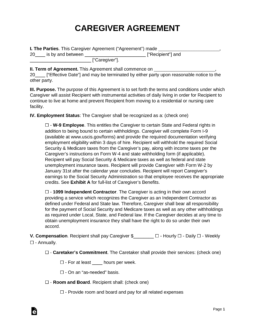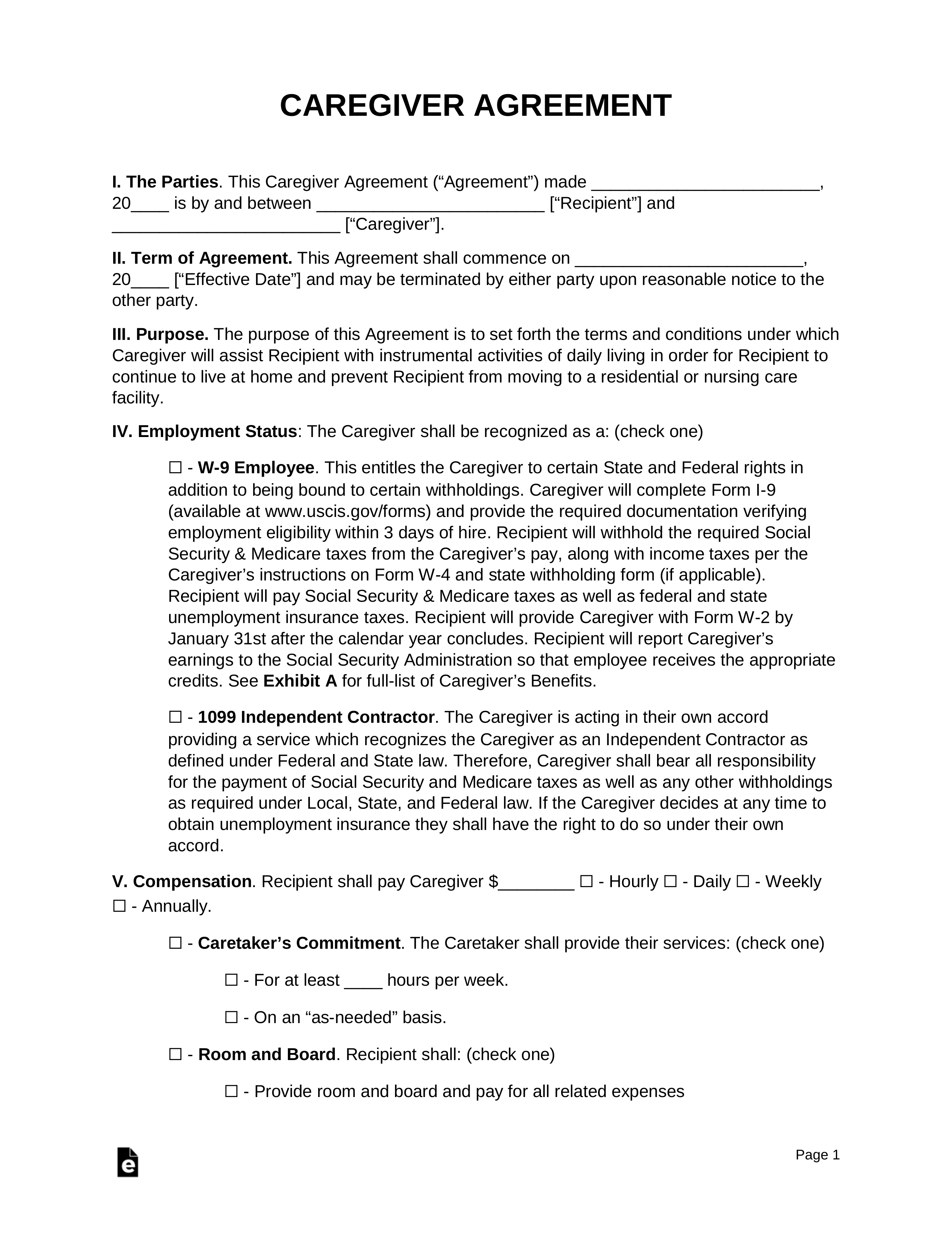Updated September 26, 2023
A caregiver contract agreement is used to hire an individual or nurse to take care of someone else in exchange for payment. The caregiver can be a personal friend or family member, but based on the patient’s condition, a licensed nurse is recommended. The caregiver is generally required to provide balanced meals, clean the home, do housekeeping duties, run errands, and meet personal care needs.
Table of Contents |
What is a Caregiver?
A caregiver is someone who is paid to take care of another person, commonly an elderly individual or someone with special needs. A caregiver is paid to provide day-to-day care such as transportation, preparing meals, housekeeping chores, and any other needs of the individual. The caregiver will typically follow a weekly schedule outlined either in the agreement or determined otherwise by the parties.
Caregiver Average Pay
Live-in Caregiver
If the hired caregiver is a family member or a friend who will be living in the same home, there may be tax advantages to the employer. Simply put, if the caregiver is there to “look after” the patient and spends no more than 20% of their daily living activities caring for them, the caregiver may not be eligible for minimum wage.
Is a Caregiver an Employee or an Independent Contractor?
Depending on the situation, the caregiver may be considered an employee or an independent contractor under state and federal laws.
Employees
- Paid directly by the patient
- Paid every payment interval
- Files IRS Form W-2
- Files State and Federal unemployment insurance
Independent Contractors
- Paid by an entity (unless accepting payment as a sole proprietor)
- Paid after an invoice is issued
- Files IRS Form 1099
- Does not file any unemployment insurance
Additional Recommended Forms
Durable (Financial) Power of Attorney – Gives a caregiver the power to pay bills, make deposits, and provide the assistance needed to handle financial responsibilities on someone else’s behalf.
Medical Power of Attorney – Gives the caregiver the right to make healthcare decisions on someone else’s behalf. This is common if the patient is not able to speak for themselves and a caregiver is assigned the duty of making decisions for the benefit of the patient. This form also includes a living will that allows the patient to make end-of-life decisions if they should be in a state of incapacitation for a longer period of time.


